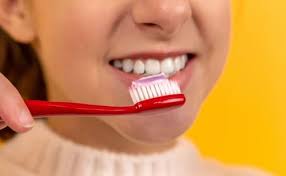
Introduction
Oral health is an integral part of overall well-being, and maintaining healthy teeth and gums is essential for a confident smile and overall health. While the basics of dental care—brushing and flossing—are well-known, taking your dental care game to the next level involves a comprehensive approach. In this extensive guide, we’ll explore five in-depth tips to enhance your dental care routine, prevent cavities, and promote a lifetime of strong, healthy teeth.
- Master the Art of Brushing: Understanding Techniques and Timing
a. Brushing Technique:
- The effectiveness of your brushing routine lies not just in frequency but also in technique. Use a soft-bristled toothbrush and employ the circular or modified Bass technique, ensuring gentle yet thorough cleaning.
b. Duration and Frequency:
- Brushing for at least two minutes twice a day is the standard recommendation. Set a timer or use an electric toothbrush with a built-in timer to ensure you dedicate adequate time to each session.
c. Choose the Right Toothpaste:
- Opt for fluoride toothpaste to strengthen enamel and prevent tooth decay. Consider desensitizing toothpaste if you have sensitivity issues.
d. Replace Your Toothbrush Regularly:
- Change your toothbrush every three to four months or sooner if the bristles are frayed. A worn-out toothbrush is less effective at cleaning your teeth.
e. Tongue Cleaning:
- Don’t neglect your tongue. Use a tongue scraper or your toothbrush to gently clean the surface of your tongue, removing bacteria and preventing bad breath.
- Flossing: The Often Overlooked Hero of Dental Care
a. Proper Flossing Technique:
- Master the correct flossing technique to ensure you reach between teeth and along the gumline. Use a gentle sawing motion to avoid injuring your gums.
b. Regular Flossing Routine:
- Floss at least once a day to remove plaque and food particles from areas your toothbrush can’t reach. Consistency is key to maintaining healthy gums.
c. Consider Alternatives:
- If traditional flossing is challenging, consider alternatives such as dental picks, interdental brushes, or water flossers. The goal is to find a method that you will consistently use.
- Mindful Nutrition for Oral Health: Fueling Your Teeth from Within
a. Calcium-Rich Foods:
- Include calcium-rich foods like dairy products, leafy greens, and almonds in your diet to promote strong teeth and bones.
b. Vitamin D and Phosphorus:
- Ensure sufficient intake of vitamin D and phosphorus, crucial for calcium absorption. Fatty fish, eggs, and fortified cereals are excellent sources.
c. Limit Sugary and Acidic Foods:
- Reduce the consumption of sugary and acidic foods, which contribute to enamel erosion and cavity formation. Opt for whole foods and beverages like water and milk.
d. Chew Sugar-Free Gum:
- Chewing sugar-free gum stimulates saliva production, which helps neutralize acids, clean the mouth, and strengthen enamel.
e. Stay Hydrated:
- Drinking plenty of water helps rinse away food particles, bacteria, and acids, contributing to a healthier oral environment.
- Regular Dental Checkups and Cleanings: Preventative Measures for Optimal Oral Health
a. Biannual Dental Visits:
- Schedule regular dental checkups and cleanings every six months. These appointments allow your dentist to detect and address issues early, preventing the progression of dental problems.
b. Professional Cleanings:
- Professional cleanings remove plaque and tartar buildup, reducing the risk of cavities and gum disease. They also provide an opportunity for your dentist to offer personalized oral care advice.
c. X-rays for Early Detection:
- X-rays help identify issues not visible to the naked eye, enabling early detection of cavities, bone loss, and other dental concerns.
d. Customized Prevention Plans:
- Work with your dentist to create a personalized prevention plan, which may include fluoride treatments, sealants, or other preventive measures tailored to your oral health needs.
- Addressing Dental Anxiety: Creating a Positive Dental Experience
a. Open Communication with Your Dentist:
- Communicate openly with your dentist about any fears or anxieties you may have. Establishing trust and understanding can significantly improve your dental experience.
b. Explore Relaxation Techniques:
- Practice relaxation techniques such as deep breathing or listening to calming music before and during dental appointments to alleviate anxiety.
c. Sedation Dentistry Options:
- Explore sedation dentistry options if anxiety is a significant barrier to dental care. Methods range from nitrous oxide (laughing gas) to oral sedatives or intravenous sedation.
d. Choose a Dentist Who Understands Your Needs:
- Select a dentist who is empathetic to dental anxiety and creates a supportive, comfortable environment. Establishing a positive rapport with your dental team can transform your overall experience.
Conclusion
Elevating your dental care game goes beyond the routine of brushing and flossing; it encompasses a holistic approach to oral health that includes mindful nutrition, regular checkups, and addressing dental anxiety. By incorporating these comprehensive tips into your daily life, you not only prevent cavities but also pave the way for a lifetime of optimal oral health, confident smiles, and overall well-being. Remember, your dental care routine is an investment in your health, and with a proactive approach, you can enjoy the benefits of strong, healthy teeth for years to come.